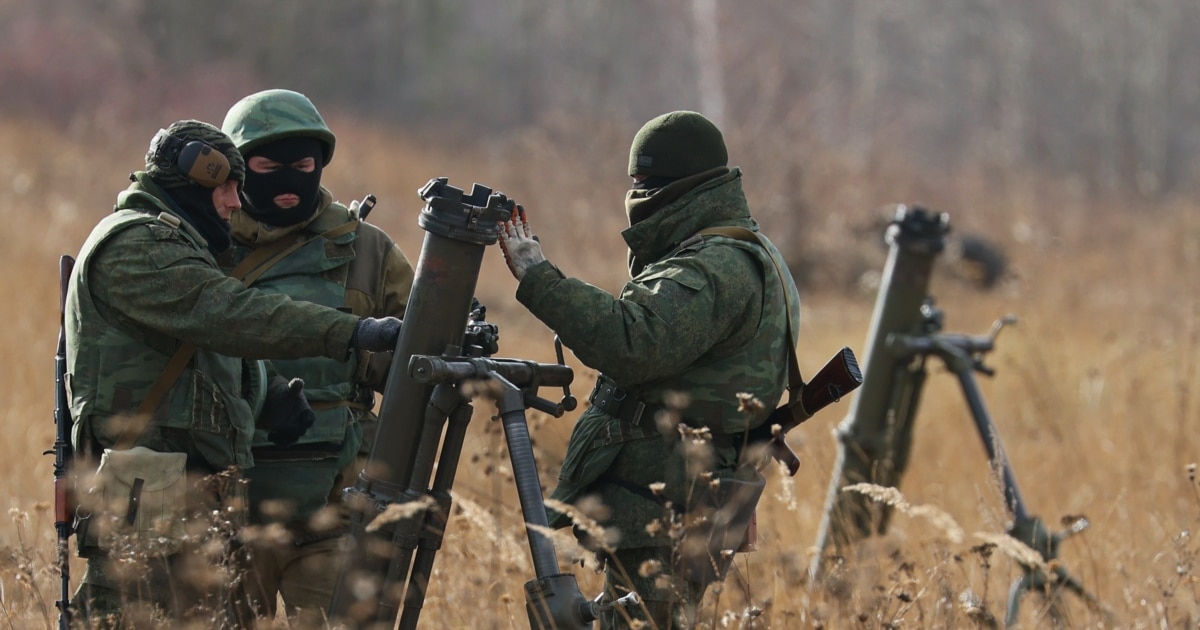Russia will be able to deploy members of its active reserve to fight in Ukraine if needed under amendments drawn up by Russia’s Defense Ministry and likely to be formally approved by parliament.
The amendments would give the Defense Ministry greater flexibility to ramp up the size of its force in Ukraine and allow Russian President Vladimir Putin to refresh the force by calling up reservists who have voluntarily signed contracts with the Defense Ministry, thus avoiding another unpopular mobilization.
The amendments also would allow the Kremlin to deploy active reservists into combat more rapidly than was possible under previous methods requiring a formal declaration of war or mobilization order, according to the Institute for the Study of War (ISW).
The ISW said the changes also would give Russia a way to expand its forces that is cheaper than the current use of large financial incentives to volunteers who sign contracts with the regular army to fight in Ukraine.
Russia’s existing recruiting system is likely “hitting diminishing returns and is forcing the Kremlin to adopt a different approach using rolling compulsory mobilization of reservists to sustain its manpower in the face of its continuing high casualty rate in Ukraine,” the ISW said.
One of the draft amendments creates a new category called “special assemblies” that would train for no more than two months before the reservists are deployed abroad. In addition, Putin could mobilize reservists to perform special tasks, including what the Kremlin calls “counterterrorism operations.”
There are currently around 2 million members of the active reserve, according to Russian lawmakers quoted by Russian media.
The reservists, who undergo annual military training and receive pay for being in the active reserve, would get paid extra if summoned under the new terms and conditions set out in the amendments, the RBC news outlet and Russian state media reported.
The move comes amid reported shortages of military personnel in the Russian armed forces and with some estimates putting the number of Russian dead and wounded in the conflict in Ukraine at more than 1 million.
The draft amendments were backed by the Commission on Legislative Activity on October 13 after being put forward by the Defense Ministry.
Alexei Zhuravlev, deputy chairman of the parliament’s Defense Committee, said the changes would broaden the definition for when the reservists could be used.
“Until now it has only been possible to use this potential during periods of martial law or mobilization. We are engaged in very real and large-scale combat operations…but officially, war has not been declared,” he said.
A further amendment would authorize their deployment abroad.
The ISW said once the amendments are approved the Kremlin will likely conduct rolling partial mobilization without formally declaring war on Ukraine or formally announcing that it is conducting a partial involuntary call up.
Andrei Kartapolov, chairman of the parliament’s Defense Committee, said once the law is changed Putin could choose to deploy the reservists outside Russian territory, including to Ukraine’s Sumy and Kharkiv regions.
Russia been augmenting its forces in Ukraine by using foreign fighters from North Korea and has used dishonest recruitment ads on social media to recruit people in desperate need of money from Cuba.
With reporting by Reuters and TVP World
